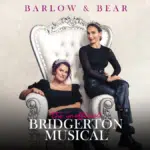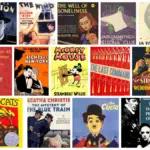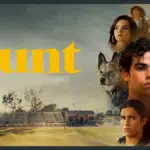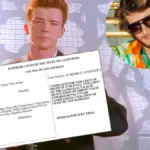Well, well, well. How the turntables.
Taking a page out of “the best defense is a good lawsuit” playbook, Taylor Swift has filed a new copyright infringement complaint against Evermore Park, the Utah fantasy theme park that earlier this month sued the singer for trademark infringement. The park’s lawsuit claimed that Swift was confusing the public by calling her latest album “Evermore” and by selling merchandise that infringed the park’s trademark rights in that name. Now Swift is firing back in what is quickly shaping up to be the bruising battle Led Zeppelin warned us all about.
TAS Rights Management, LLC v. Evermore Park, LLC
Swift’s counterattack was filed yesterday in Tennessee federal court by TAS [“Taylor Alison Swift”] Rights Management, the company that owns Swift’s intellectual property, including copyrights in her musical compositions.
The wheels were set in motion for the new lawsuit when a former Evermore Park volunteer reached out to Swift’s lawyers on February 3 with some dirt on Evermore Park: the company that just sued Swift for trademark infringement had for years been infringing Swift’s own intellectual property rights by performing her songs at its park without a proper license.
Apparently Evermore is not a typical theme park. Lacking any major rides, it instead features trained actors stationed around the park who portray fantasy characters. The setting is an old world Gothic styled village, something the park’s website calls a “fantasy European hamlet of imagination.” And while the whole thing looks to have a Renaissance fair sort of vibe, for some reason the characters perform songs by Katy Perry, Semisonic and Third Eye Blind. (With apologies to all of the Evermore Park fans out there, I think I’d rather spend a day on hold with my internet provider’s customer service department.)
But the dwarves and sorcerers of Evermore Park weren’t just belting out “Closing Time” and “Semi-Charmed Kind of Life.” According to the complaint, such Swift classics as “Love Story,” “You Belong With Me” and “Bad Blood” were also performed by the park’s cast of characters.
Starting in 2019, performing rights organization BMI learned that part of an Evermore player’s job was to perform copyrighted songs for park guests. For reasons unknown, park representatives allegedly ignored BMI’s demands that they obtain a public performance license for nearly two years.
This changed, according to the complaint, when Evermore Park became aware that its former volunteer had contacted Swift’s camp. Only weeks ago, “in an attempt to cover up their willful infringement,” the Park’s CEO Ken Bretschneider called BMI’s Nashville, Tennessee office to see if Evermore could obtain a retroactive license that would cover its prior unauthorized public performances. But by then it was too late.
Copyright Law’s Public Performance Right
As a reminder, a recorded song contains two separate copyrights: one for the actual sound recording and one for the underlying musical composition. If you perform a copyrighted musical composition in public—regardless of whether you’re playing a prerecorded song or singing a live cover version—you generally need to secure a public performance license.
These licenses are typically issued by performing rights organizations (PROs) like ASCAP or BMI. Swift’s complaint alleges that the defendants were “clearly and unambiguously informed” by BMI that as a business where music was publicly performed, Evermore Park was “required to obtain authorization from the copyright owners of that music in order for [its] performances to be legal.”
Back in the 1990’s, ASCAP made national headlines for sending these types of demand letters to summer camps around the United States—including the Girl Scouts—informing them that they had to pay a fee to sing the copyrighted songs performed around the campfire. (“They buy paper, twine and glue for their crafts – they can pay for the music, too,” one of ASCAP’s representatives reportedly said at the time.)

Of course, one would expect that commercial establishments that are in the business of offering live entertainment—such as Evermore Park—would recognize the importance of obtaining the proper copyright licenses. This seems especially apparent where, as here, the park is simultaneously attempting to enforce its intellectual property rights against an artist whose own IP it allegedly infringed.
I’m only aware of one other lawsuit against a theme park for performing copyrighted musical compositions without permission. That lawsuit, coincidentally also filed in Tennessee, was brought by Lee Mendelson Film Productions, the owner of the copyright in the “Charlie Brown Christmas” theme song. The plaintiff sued Dollywood, claiming that the Dolly Parton-themed attraction used the Charlie Brown song in a holiday show without a proper license. While Dollywood did apparently secure a license from BMI to publicly perform the composition, the plaintiff claims that because its song was used in a dramatic musical, a separate “grand rights” license was required. That lawsuit is still pending, and is currently scheduled to go to trial at the end of the year.
Like the plaintiff in the “Dollywood” case, Taylor Swift’s company is seeking a separate set of damages for every time one of her songs was performed at Evermore Park. It could add up to a hefty sum—one that Swift’s lawyers no doubt hope will help convince the park to call a truce in this modern day Battle of Evermore. Of course, it’s just another day in this strange and wonderous land we call copyright law.
A copy of the the new lawsuit is below. As always, I’d love to hear your thoughts. Hit me up in the comments or on your social media account of choice @copyrightlately.
View Fullscreen






